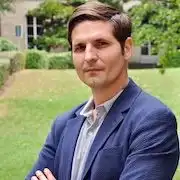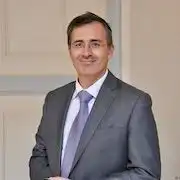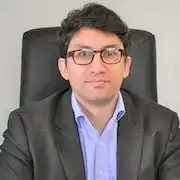Home>On the economic frontline: the Department's researchers analyse the impact of Covid-19
06.04.2020
On the economic frontline: the Department's researchers analyse the impact of Covid-19
While Sciences Po temporarily closes its doors, the Department's researchers continue to analyse and evaluate the impact of the pandemic Covid-19 on the economy. An anthology of their latest publications on the subject, updated regularly.
philippe martin and jean pisani-ferry recommend a european recovery initiative that should repair and reconstruct

In a Vox-EU column on April 20th, faculty members Philippe MARTIN and Jean PISANI-FERRY, with five other prominent european economists, make a case in favour of a recovery initiative whose objective should be twofold: "to repair corporate balance sheets and value chains; and to reconstruct the economy on a new, sustainable basis...". Résumé.
"The EU has been slow to formulate its response to the Covid crisis. Fortunately, things have started to change. The EU’s leaders should finish work on the new borrowing facilities, first by clarifying the maturities of the borrowings, and second by being prepared to beef up their amounts if needed. It is also crucial to find ways to jointly finance priority action and to provide support to countries worst affected by the crisis in order to restart their own economies. The objective of a Recovery Initiative should be to repair and reconstruct the EU economy: to repair corporate balance sheets and value chains; and to reconstruct the economy on a new, sustainable basis through investment in common public goods such as research, resilience, and the greening of the economy. This will involve targeted investment, coordinated restructuring in some sectors, and the introduction of an equity fund to help SMEs survive the crisis."
Read the Vox-EU column "Repair and reconstrct: A Recovery Initiative" on the CEPR Policy Portal
More about Philippe MARTIN and his research
More about Jean PISANI-FERRY and his research
Yann Algan examines the “Covid-19 effect” on social and political trust in Europe

The results of a recent analysis carried out by Yann ALGAN, permanent faculty member and the Dean of the School of Public Affairs, in collaboration with Bruno CAUTRES, researcher at CEVIPOF, is featured in the online and print versions of Le Monde this Saturday, April 18th, 2020.
The Department of Economics (ERC SOWELL, GA n°647870) and CEVIPOF, in collaboration with the Institut Montaigne, Fondation Jean Jaurès, Fondapol and Terra Nova foundations, recently carried out an additional wave of CEVIPOF’s "Political Confidence Barometer" (in French) in the midst of the Covid-19 crisis. The same nationally representative samples of French, British and Germans who took part in the February wave of this survey were recontacted in early April and asked to, once again, answer a core set of questions on their self-confidence, social trust and political trust. They were also questioned on their experiences during confinement, their feelings of national solidarity, and their opinions regarding the management of the crisis and related government policies. The timing of the surveys - before and after confinement was imposed - provides an unprecedented opportunity to examine the “Covid-19 effect” on the attitudes and behaviours of French, British and Germans in terms of social and political confidence.
Sergei Guriev will discuss Containing the economic nationalist virus through global coordination

The Centre for Economic Policy Research (CEPR) and the Peterson Institute for International Economics (PIIE) are co-organising a webinar to discuss the nationalism and populism aspects of Covid-19 and its impact on the world economy.
Sergeï GURIEV, permanent faculty member and Director of the Department’s Master’s and PhD in Economics programmes, is one of the panelists along with Monica DE BOLLE (PIIE) and Adam S. Posen (CEPR) invited to debate on the topic. Résumé.
"Economic nationalism has resurfaced in a global economy already weakened by the COVID-19 pandemic. People and politicians try to look after those closest to them, hoarding medical equipment and withholding aid for poorer countries. But these policies are self-defeating. Over time, countries that try to decouple from the global economy will end up suffering more from lack of diversified sourcing and unavoidable local shocks."
The hour-long webinar will take place on Wednesday, April 15th at 12:30 (EST, Washington), 17:30 (BST, London), 18:30 (CEST, Paris).
Read more about this exceptional webinar and register (mandatory) for it !
More about Sergeï GURIEV and his research
the franco-german council of economic experts call for a "coordinated covid response"

On April 6th, 2020, Philippe MARTIN and Xavier RAGOT, members of the Franco-German Council of Economic Experts, called upon the French and German Ministers of Economics and Finance, to endorse a series of proposals made to respond to the impact of the pandemic Covid-19 at the European level.
These measures include:
- the "Covid Credit Line" (read Philippe Martin and Jean Pisani-Ferry's proposal in the Vox EU column)
- the temporary "Support to mitigate Unemployment Risks in an Emergency" (SURE) proposal
- a post Covid Investment Fund
Background.
"The Corona pandemic poses an unprecedented dilemma to societies and economies around the world. Policy makers need to trade off possible increases in the number of bankruptcies and of unemployed workers with an effective reduction of new infections. Opening the economy will offer no sustainable economic benefits if the pandemic bounces back as a result. Currently, in lieu of other choices most of the world has gone into lockdown. At the present stage this is the only option left to avoid overburdening the intensive care units of hospitals, which would result in large losses of human life.
"Inevitably, this approach comes at severe economic and human costs. These costs should be socialized and smoothed over time which implies a high degree of risk-sharing. In the present crisis, where the shock is fully exogenous, the argument of moral hazard against insurance does not apply.
"Since a noticeable fraction of economic activity is currently prevented from happening by obligatory social distancing, all major economies experience a drastic and simultaneous shock to demand and supply, and have consequently entered a severe recession. Our assessment is that France and Germany will likely experience negative growth rates beyond – 5% in 2020."
More about Philippe MARTIN and his research
More about Xavier RAGOT and his research
roberto galbiati cautions against simple country correlations when looking at policy options

In a VoxEU column on March 28th, Roberto GALBIATI, CNRS Professor and permanent faculty member, co-authored a call to be wary of simple cross-country correlation analysis when examining policy options. Rather, policy makers should look to empirical analysis using detailed and harmonised microdata at the European level. Résumé.
"Italy has been hit particularly badly by the COVID-19 pandemic and has one of the highest case fatality rates. High levels of intergenerational interaction in the country have been identified as a potential contributor to this. This column cautions against drawing policy implications from simple cross-country correlation analysis. It argues instead that sound empirical analysis using detailed and harmonised microdata at the European level should be conducted to analyse the effectiveness of policy interventions. "
Philippe martin and jean pisani-FERRY propose a covid credit line and a multi-INSTRUMENT APPROACH FOR THE EU

In two separate VoxEU columns, faculty members Philippe MARTIN and Jean PISANI-FERRY, alongside more than a dozen of prominent economists in France, in Germany and beyond, have responded to the European Central Bank's Pandemic Emergency Purchase Programme (PEPP).
They call for the creation of a specific credit line in the European Stability Mechanism and advocate for a "multi-instrument approach" in the European Union.
On March 21st, Philippe MARTIN and Jean PISANI-FERRY proposed the creation of a "covid credit line". Résumé.
"It is in the interest of every EU member state that countries in the Union hit by the coronavirus are able to take the necessary measures to control the pandemic and deal with the economic consequences without being constrained, and to do so very quickly. This column proposes a Covid credit line in the European Stability Mechanism, with allocation across member states proportionate to the severity of the public health and economic challenges encountered. While it would involve some coordination and solidarity among member states, the dedicated credit line would reduce risks to economic and financial stability for all while allowing members to sustain their efforts by making their borrowing costs less dependent on individual fiscal situations."
Read VoxEU column "A Proposal for a Covid Credit Line" on the CEPR's policy portal
On April 6th, they called for a multi-instrument approach "that would jointly achieve three objectives: sharing the cost of the COVID crisis, helping member states to borrow at very long maturities and low interest rates, and relaunching the EU after the crisis". Résumé.
"There are now several proposals for complementing the vigorous decision of the ECB to launch a mega ‘pandemic emergency purchase programme’ with fiscal and financial initiatives at the European level. These proposals sometimes overlap, which is a good sign of convergence. This column argues that they are also largely complementary to one another. Hence, it calls for a multi-instrument approach that would jointly achieve three objectives: sharing the cost of the COVID crisis, helping member states to borrow at very long maturities and low interest rates, and relaunching the EU after the crisis. In addition to existing tools, the authors believe that a tryptic built around a COVID fund (with borrowing capacity), specific credit guarantees with the European Investment Bank and dedicated credit lines such as an ESM COVID line or the recently proposed temporary Support to mitigate Unemployment Risks in an Emergency (SURE) would be appropriate, provided it is sized up and allows for very long-run borrowing."
mirko wiederholt looks at what new economics has to offer to stop the spread of the virus

"An important debate in economics is whether a problem should be tackled at its source or whether one should treat its consequences... Most writing by economists in the recent days has focused on the economic consequences of the pandemic (e.g. Baldwin and di Mauro 2020). In this column, we focus instead on what new economics says about how one can tackle the problem at its source by stopping the spread of the virus."
Mirko WIEDERHOLT and Bartosz MAĆKOWIAK propose to use a theory of decision-making by agents who have limited information-processing ability. Résumé.
"Economists may not have been able to do much about the outbreak of the coronavirus, but this column argues that economics can help tackle the problem at its source by reducing the spread of the virus. Using a theory of decision-making by agents who have limited information-processing ability, it offers various recommendations for individuals and policymakers to limit the spread of COVID-19."
xavier ragot: "After the crisis, I don't believe in a return to the world as it was 'before'"

Xavier RAGOT, CNRS Director, permanent faculty member and President of the Observatoire français des conjonctures économiques (OFCE), another Sciences Po research centre, granted an interview on the occasion of the OFCE's latest policy brief on the economic impact of the Covid19 pandemic published March 30th. Résumé.
Responding to the question "will the decisions made by national and european economic institutions in response to the sanitary crisis be enough to cushion the shock of the economic crisis, an inevitable consequence of the Covid-19 pandemic?", Xavier RAGOT points to the need to rethink, at the end of this tragic episode, the links between economy, society and environment.
Read the online interview "Après la crise, je ne crois pas à un retour au monde d'avant" (in French)
The OFCE is an independent institute dedicated to economic research and forecasting and one of our partners. Also on the frontline, the OFCE has published over the past weeks a number of analyses related to the Covid-19 pandemic that may be consulted via its blog. The OFCE also publishes on a regular basis policy briefs: on March 30th, the OFCE presented its evaluation of the economic impact of the Covid-19 pandemic and containment measures (in French).
Our partners
Institutional partnerships for research and innovation
- CNRS
- Banque de France
- The CORE Project
- The Kellen Foundation
Other research centres
- LEPI
- LIEPP
- OFCE
